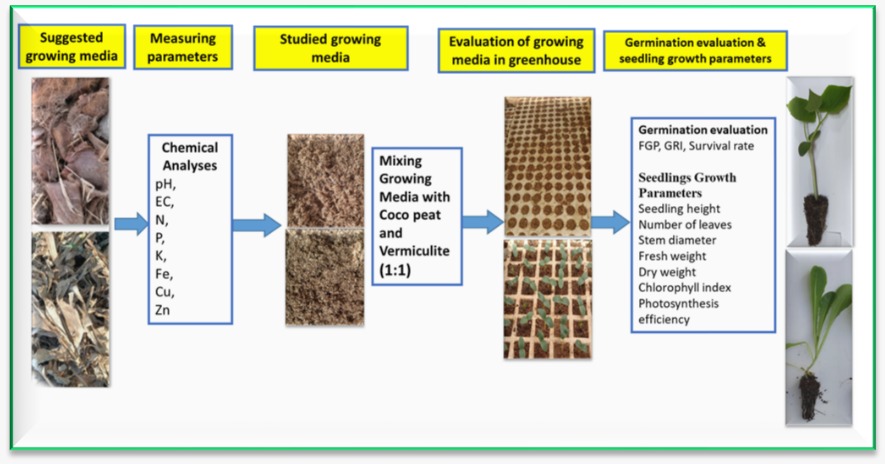
The cultivation of bananas and dates is common in Egypt, producing a large amount of waste both during and after processing, which needs sustainable management due to human health concerns. The current study was carried out to evaluate the possible use of banana leaf and date palm fiber waste, combined with peat moss or vermiculite, as a peat substitute to produce tomato, cucumber, and lettuce seedlings. The main treatment included (1) the control (traditional growing medium of peatmoss: vermiculite; 1:1), (2) medium of date palm fibers (DPF), (3) medium of banana leaves (BL), (4) medium of DPF and peatmoss (1:1, v/v), (5) medium of BL and peatmoss (1:1, v/v), (6) medium of DPF and vermiculite (1:1, v/v), and (7) medium of BL and vermiculite (1:1, v/v). The main findings of this study showed the role of such applied agro-wastes in the germination and growth of the studied vegetable seedlings. The use of DPF in preparing growing media, either alone or in combination with peatmoss or vermiculite, recorded the preferable results for the studied vegetable seedlings, as noticed in the studied parameters, including germination, biochemical, and seedlings growth. The most obvious finding to emerge from this result is that DPF is preferable to BL because BL has higher values of pH and salinity levels compared to other mixed-growing media. The results also confirm that BL waste can improve its properties by mixing it with vermiculite or peatmoss to produce the required vegetable seedlings, such as tomato, cucumber, and lettuce. Further research is required to determine the optimal mixing ratio and explore various possibilities for utilizing other agro-wastes in horticultural nurseries.
Total file downloads: 12